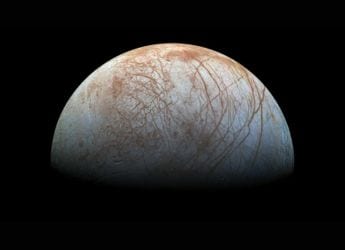- Home
- Science
- Science News
- AI Algorithm Unveils Previously Unknown Arithmetic Underlying the Search for Exoplanets
AI Algorithm Unveils Previously Unknown Arithmetic Underlying the Search for Exoplanets
The AI algorithm pointed to a mathematical way to unify the two major types of degeneracy in interpreting what telescopes detect during microlensing.

Photo Credit: Pexels/ Tara Winstead
AI systems can uncover fundamental relationships that humans miss
Artificial intelligence or AI algorithms trained on real astronomical observations speed up the pace of discoveries. However, astronomers at the University of California, Berkeley, discovered that AI can reveal unsuspected connections hidden in complex mathematics arising from general relativity — in particular, how that idea is applied to the discovery of new planets around other stars. An AI algorithm built to locate exoplanets faster when such planetary systems pass in front of a background star and temporarily brighten it — known as gravitational microlensing — revealed that the theories employed to explain these findings were incomplete.
Albert Einstein demonstrated in 1936 how gravity of a foreground star can bend light from a distant star, not only illuminating it as seen from Earth but also splitting it into multiple points of light or bending it into a ring, now known as an Einstein ring.
The brightening over time is more complicated when the foreground object is a star with a planet. Furthermore, there are numerous planetary orbits that can also explain a given light curve, known as degeneracies. Humans simplified the math and missed the wider picture as a result.
The AI algorithm, on the other hand, pointed to a mathematical way to unify the two major types of degeneracy in interpreting what telescopes detect during microlensing. It demonstrated that the two theories are really special cases of a broader theory that is likely still incomplete, according to the researchers. They have documented their findings in a paper in the journal Nature Astronomy.
Joshua Bloom, a UC Berkeley professor of astronomy and chair of the department, had written in a blog post a few months ago that they discovered something new and essential about the equations that govern the general relativistic effect of light bending by two heavy bodies, thanks to a machine learning inference approach that they had previously developed.
Bloom linked the discovery by UC Berkeley graduate student Keming Zhang to linkages established by Google's AI team, DeepMind, between two fields of mathematics. These examples demonstrate that AI systems can uncover fundamental relationships that humans miss.
Bloom said that in his opinion, they were one of the first instances of AI being utilised to directly provide fresh theoretical knowledge in maths and astronomy. They have been looking for an AI framework to act as an intellectual rocket ship for scientists, just as Steve Jobs thought computers could be mental bicycles, said Bloom.
Co-author Scott Gaudi, a professor of astronomy at the Ohio State University, said that this was a milestone in AI and machine learning. Experts in the field who had been working with data for decades had missed this degeneracy until Keming's machine learning method identified it.
Catch the latest from the Consumer Electronics Show on Gadgets 360, at our CES 2026 hub.
Related Stories
- Samsung Galaxy Unpacked 2025
- ChatGPT
- Redmi Note 14 Pro+
- iPhone 16
- Apple Vision Pro
- Oneplus 12
- OnePlus Nord CE 3 Lite 5G
- iPhone 13
- Xiaomi 14 Pro
- Oppo Find N3
- Tecno Spark Go (2023)
- Realme V30
- Best Phones Under 25000
- Samsung Galaxy S24 Series
- Cryptocurrency
- iQoo 12
- Samsung Galaxy S24 Ultra
- Giottus
- Samsung Galaxy Z Flip 5
- Apple 'Scary Fast'
- Housefull 5
- GoPro Hero 12 Black Review
- Invincible Season 2
- JioGlass
- HD Ready TV
- Laptop Under 50000
- Smartwatch Under 10000
- Latest Mobile Phones
- Compare Phones
- Realme Neo 8
- OPPO Reno 15 FS
- Red Magic 11 Air
- Honor Magic 8 RSR Porsche Design
- Honor Magic 8 Pro Air
- Infinix Note Edge
- Lava Blaze Duo 3
- Tecno Spark Go 3
- Acer Chromebook 311 (2026)
- Acer Chromebook Spin 311
- Lenovo Idea Tab Plus
- Realme Pad 3
- Moto Watch
- Garmin Quatix 8 Pro
- Haier H5E Series
- Acerpure Nitro Z Series 100-inch QLED TV
- Asus ROG Ally
- Nintendo Switch Lite
- Haier 1.6 Ton 5 Star Inverter Split AC (HSU19G-MZAID5BN-INV)
- Haier 1.6 Ton 5 Star Inverter Split AC (HSU19G-MZAIM5BN-INV)







![[Sponsored] Haier C90 OLED TV | Dolby Vision IQ, 144Hz OLED and Google TV in Action](https://www.gadgets360.com/static/mobile/images/spacer.png)









